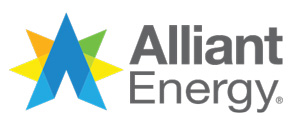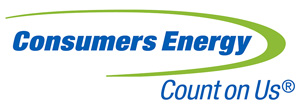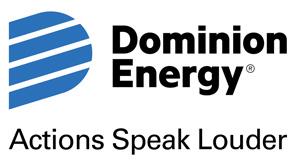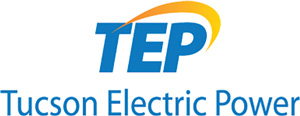By the Business Facilities Staff
From the January/February 2022 Issue
It takes a lot to power up a local economy. Cities, states and regions offer a variety of incentives to attract relocating and expanding businesses, but it often comes down to the area’s utility to close the deal. Businesses know that utilities offer more than heat and light, and look to these power companies as partners in economic development.
Utilities can play an essential role in whether a company relocates to an area or expands its current presence, and the most innovative ones have developed effective programs that help businesses with site selection, workforce analytics and sustainability efforts. The result for employers and for the communities is additional jobs, improved infrastructure, and, crucial these days, cleaner energy.

On the flip side, many businesses pay a tremendous amount of attention to those utilities that do not keep up with the latest technologies and innovations and fail to offer them what they need.
The Top Utilities 2021 were selected based on several factors, and the list covers an assortment of local players, multi-state entities, and membership organizations. These power providers are among the most successful in offering innovative programs and expert assistance to attract businesses that need to build a warehouse, break ground on a factory, or add a headquarters campus.
Here (in alphabetical order) are the top utilities for 2021:
 Alabama Power
Alabama Power
Birmingham, AL
www.alabamapower.com/business/economic-development.html
The Alabama Power Economic and Community Development team offers several services. Building and site identification helps businesses identify target zones within project parameters such as rail access and utility infrastructure. Site due diligence includes site mapping conceptual rendering, topographical studies, and 3-D modeling. Workforce and demographics analysis includes data on wages for different occupations. The team can also assess tax abatements and incentives, and offer transportation and supply chain expertise.
Alabama Power offers competitive prices, reliable electricity supply, and stellar service to 1.5 million homes, businesses and industries in the southern two-thirds of the state. It is a subsidiary of Southern Company.
 Alliant Energy
Alliant Energy
Cedar Rapids, IA
Mark Seckman
Senior Business Attraction Manager
markseckman@alliantenergy.com
www.alliantenergyeconomicdevelopment.com/
The experienced economic development team at Alliant Energy moves projects to the finish line quickly and provides a dedicated person to lead a project from start to finish. The utility offers options that put companies in control of their energy mix so they can meet their sustainability goals.
When the pandemic unfolded, Alliant Energy launched an interactive mapping project on its website. The maps enable site location consultants, real estate executives, and target industry executives to see industrial sites without having to travel. The interactive mapping platform showcases certified sites across the company’s Iowa and Wisconsin territories, providing critical data on community assets, labor force, population, and other factors. These certified sites reduce potential issues, which expedites timelines and mitigates risk.
Alliant Energy helps companies meet sustainability goals, and provides flexible solutions to industrial businesses, including solar arrays, microgrids, battery storage, green Renewable Energy Credits (RECs), energy management solutions, and customizable rate programs. Alliant Energy’s Clean Energy Blueprint is a roadmap to accelerate the utility’s transition to renewable energy, which has become especially important as the company works to sustain the economic and environmental health of the communities it serves. To answer customer demand for renewable energy as well as affordability, Alliant Energy is accelerating its sustainability goals to eliminate all coal from its generation fleet by 2040 and achieve net-zero carbon dioxide emissions from the electricity it generates by 2050.
Alliant Energy embraces new technologies such as battery storage to capture wind and solar energy and release it back onto the energy grid when needed, moving power lines from overhead to underground as customers’ homes and businesses face more distributed energy resources, and adding smart devices to power lines to automatically detect problems and redirect energy to where it is needed.
Biggest 2021 project: Iowa Premium, a subsidiary of National Beef Packing Co. LLC, plans to construct a new state-of-the-art 800,000-square-foot beef processing plant in Tama, IA, including $562 million in capital investments.
 Ameren Illinois
Ameren Illinois
Collinsville, IL
Eric Whitfield
Senior Manager, Economic Development
JWhitfield@ameren.com
www.ameren.com/illinois
Ameren Missouri
St. Louis, MO
Rob Dixon
Director, Economic and Community Development
RDixon@ameren.com
www.ameren.com/missouri
Ameren Illinois and Ameren Missouri are both are part of Ameren Corporation.
Ameren Illinois is a regulated gas and electric company that delivers energy to 1.2 million electric and more than 800,000 natural gas customers throughout central and southern Illinois. Illinois is a leading state for advanced manufacturing, and has attracted companies looking for low energy rates, a central location, and the economic development initiatives that Ameren Illinois offers, such as workforce profiles, a database of prescreened building sites, and incentives for customers/developers to help offset costs. “Our team is focused on understanding customer needs and tailoring our programs within our regulatory framework to meet their expectations,” said Eric Whitfield, senior manager, economic development for Ameren Illinois.
Ameren Missouri is the state’s largest electric power provider and provides electric service to 1.2 million customers and natural gas service to 132,000 customers. Ameren Missouri’s economic development team provides business location services, site inventory, workforce profiles, and infrastructure planning. New or expanding commercial and industrial businesses may qualify for an average 40% discount from base rates over a five-year agreement through the Economic Development Incentive Rider. That represents substantial savings, as the electricity rates in Ameren Missouri’s territory are already 23% below the national average.
The utility is committed to building a sustainable energy future, with a 20-year plan that includes energy efficiency and generation of solar, wind, nuclear and hydroelectric power. The programs enable businesses to meet their own clean energy goals. “This is a pivotal moment in the economy across our country and around the world,” said Rob Dixon, director, economic and community development for Ameren Missouri. “As companies look at where they are going to locate, they are increasingly going to consider those areas that are committed to clean energy.”
Biggest 2021 project: In Illinois, electric vehicle manufacturer Rivian revitalized a dormant Mitsubishi plant downstate in Normal. In Missouri, Global Foundries and Global Wafers announced an $800 million investment in the St. Louis region to produce silicon wafers for semiconductors.
 Arizona Public Service
Arizona Public Service
Phoenix, AZ
Kelly Patton
Economic Development Manager
kelly.patton@aps.com
ArizonaProspector.com and SizeUpArizona.com
Cameron Robb
Senior Economic Development Consultant
cameron.robb@aps.com
APS Economic Development
One of Arizona Public Service’s most competitive offerings is infrastructure reimbursement. APS’s Line Extension Policy (also known as Schedule 3) states that when new electric service is established, APS will assist in covering construction costs for new, upgraded or relocated electric facilities and equipment that is traditionally paid by the developer or end user. The policy is typically structured as a reimbursement over a five-year period and based on achieved kW projections.
APS also offers the Solutions for Business Program, which provides direct rebates to customers that upgrade their facility with energy efficient/load management equipment, build a new energy-efficient facility, or include energy-efficient/load management options in a major renovation. Since 2018, APS has paid out over $18.4 million in energy efficiency rebates to non-residential customers.
In renewables, APS currently has a generation mix that is 50% carbon-free with a goal to become 100% clean, carbon-free by 2050. The utility anticipates 45% of generation will be from renewables by 2030 and the elimination of coal-generated electricity by 2031. Business customers can choose from three diverse pathways to invest in renewable energy through the Green Power Partners Program, which was recently approved by the Arizona Corporation Commission.
Even in the face of the pandemic, prospect activity is at a record high. The number of new projects evaluating Arizona for relocation and expansion has created demand for APS’s Economic Development team to respond with site-specific electrical infrastructure identification and competitive cost analysis to project partners and prospects at a rapid pace. The group takes a customized approach with each prospect and delivers solutions based on the unique needs of every client to serve the requested load and demand capacity within their projected timelines.
Biggest 2021 project: Taiwan Semiconductor Manufacturing Company (TSMC) purchased 1,128 acres of state land in North Phoenix for a projected $12 billion semiconductor facility. TSMC’s plans include an initial 2.5 million-square-foot factory, creating 1,500 new jobs and requiring an estimated 185 megawatts of electricity.
 Consumers Energy
Consumers Energy
Jackson, MI
Valerie Christofferson, EDFP
Director, Economic Development
Valerie.Christofferson@cmsenergy.com
www.consumersenergy.com
In June 2021, Consumers Energy, the nation’s fourth largest energy provider, announced it would stop using coal as a fuel source for electricity by 2025, which is 15 years sooner than currently planned.
“We are proud to lead Michigan’s clean energy transformation and be one of the first utilities in the country to end coal use,” said Garrick Rochow, president and CEO. “We are committed to being a force of change and good stewards of our environment, producing reliable, affordable energy for our customers while caring for our communities during the transition.” The plan, which requires regulatory approval, also adds more renewable energy—including the most aggressive solar buildout in the company’s history—and helps achieve net zero carbon emissions.
Consumers Energy partners with the Michigan Economic Development Corporation and other agencies to grow talent and innovation and expand Energy Ready Sites for new and expanding businesses. In 2021, leaders in automotive, advanced manufacturing, agriculture and other industries announced plans to invest more than $1.1 billion and create 3,434 jobs in Consumers Energy’s service territory.
Recently, the utility introduced a new economic rate. Approved by the Michigan Public Service Commission, the rate promotes the rapid growth of automotive, electric vehicle, and advanced manufacturing industries. As the largest energy provider in the state, Consumers Energy is charging forward with infrastructure to support electric vehicles in businesses and homes. In November 2021, Consumers Energy committed to power one million electric vehicles by 2030 and offers a program, PowerMIFleet, for fleet owners to transition to EVs to reduce operating costs and emissions.
Looking forward, Consumers Energy sees many opportunities to help companies locate or expand in Michigan. At the end of 2021, Governor Gretchen Whitmer announced new legislation, Strategic Outreach and Attraction Reserve (SOAR), that will support more economic development and job growth.
Biggest project: Semiconductor wafer manufacturer SK Siltron CSS announced it would establish a new facility in Monitor Township to support electric vehicle growth, creating up to 150 jobs and investing $302 million.
 Dominion Energy
Dominion Energy
Richmond, VA
www.EconomicDevelopment.DominionEnergy.com
Dominion Energy is committed to its role as a significant player in local, regional and state economic development across the 13 states where the company operates. Dominion Energy’s economic development team is developing an even more comprehensive and proactive strategy that will benefit the company’s more than seven million electric and natural gas customers.
“Despite the challenges the pandemic presented over the past year, Dominion Energy remained fully devoted to economic development across the company’s footprint,” said Felicia Howard, vice president of Economic Development Strategy. “We continued the important work of not only being a utility provider, but also a partner in the communities we serve.”
Last year, the utility’s strong focus on economic development helped secure wins in data center, advanced manufacturing, food and beverage, service and indoor agriculture projects. These ventures will support over 17,000 new jobs and $9 billion in private-sector investment across the company’s footprint. The Siemens Gamesa’s facility in Virginia, home of Dominion Energy’s headquarters, will be the first U.S. offshore wind turbine blade facility, propelling the largest new renewable energy project in the U.S.
Dominion Energy is committed to providing safe, reliable, affordable and increasingly clean energy to its customers and achieving zero carbon dioxide and methane emissions from its power generation and gas infrastructure operations nationwide by 2050. In addition, its commitment to clean energy will continue to foster sustainable economic development across the communities it serves.
 ElectriCities of North Carolina
ElectriCities of North Carolina
Raleigh, NC
Brenda Daniels, Manager of Economic & Community Development
bdaniels@electricities.org
www.electricities.com/services/economic-development/
ElectriCities of North Carolina is the energy behind public power, providing administrative, technical, legislative, communications, economic development, and other expertise for municipally owned utilities in North Carolina, South Carolina, and Virginia. The not-for-profit membership organization helps recruit companies to the region through several siting programs, grants, and other resources, and by educating about the benefits of locating in a public power community.
ElectriCities’ Site Assist program helps cities and towns identify and prioritize sites for development and recommends development steps. The Smart Sites shovel-ready certification program simplifies site selection, enabling faster construction and less risk. ElectriCities assists members with Strategic Economic Development Plans, which provide a complete marketing plan for recruitment.
Twice a year, ElectriCities awards two Downtown Revitalization Grants of $10,000 to member communities. ElectriCities Smart Communities Grants match up to $5,000 to support members’ economic development programs and projects.
Working with consulting firm Retail Strategies, ElectriCities facilitates studies for member communities to develop and implement long-term retail real estate strategies and to create strategies for developing or redeveloping downtowns. For member communities with fewer than 10,000 people, ElectriCities provides matching funds for retail strategy training.
ElectriCities economic development team members serve as reliable resources for site selectors, providing comprehensive information, from population demographics and traffic stats to the benefits of public power. North Carolina’s public power providers are statistically more reliable than other providers in the state, with power on more consistently and restored more quickly when it goes out. Operating its own electric system affords cities and towns more agility in negotiations with prospective businesses and enables those businesses to receive exceptional customer service.
Biggest 2021 project: Rocky Mount, NC announced the infrastructure project CCX Carolina Connector, an intermodal facility with the transportation services company CSX Rail.
 Florida Power and Light (FPL)
Florida Power and Light (FPL)
Juno Beach, FL
Crystal Stiles
Senior Director of Economic Development
Crystal.Stiles@fpl.com
www.PoweringFlorida.com
Florida Power & Light Company (FPL) believes power costs should never be a barrier in choosing Florida as a business location. The utility’s rates are among the lowest in the Southeast and well below the national average, but in today’s competitive economy, sometimes it takes more to attract businesses.
FPL has two main incentive programs for economic development projects in all its service areas, which as of January 1, 2022, includes the former Gulf Power service territory in Northwest Florida. With the Economic Development Rider (EDR), eligible companies receive discounts on new electric demand for up to five years, and discounts are offered based on three sets of project requirements. The Commercial Industrial Service Rider (CISR) rate was designed to attract new, large power users to the state as part of a competitive site location project.
When the pandemic hit and travel was suspended, FPL quickly added virtual site tours to its website to help local and regional partners promote their sites. FPL continued to add virtual tours to its site and will add more this year. Those virtual sites complement the Florida First Sites readiness program, which highlights sites in Northwest Florida.
As part of the nation’s largest energy company, FPL works directly with companies to find solutions to help them reach their Environmental, Social and Governance (ESG) goals. Those goals range from lighting design and EV charging to reaching net zero emissions targets. FPL is halfway through its “30-by-30” program, in which it will install 30 million solar panels by 2030. The company just opened the world’s largest solar battery facility in Manatee County, where the facility will capture and store solar energy for use even when the sun is not shining. FPL is also working on a green hydrogen program.
Largest project: FPL had several projects last year in the aerospace manufacturing, logistics and distribution, and agtech sectors.
 Georgia Power
Georgia Power
Atlanta, GA
Charlie Moseley
Manager, Statewide Economic Development
CHMOSELE@Southernco.com
www.selectgeorgia.com
For almost a century, Georgia Power has been helping towns across the state of Georgia grow and prosper. Georgia Power has created several programs that provide cost savings for customers expanding or improving their facilities. The utility offers several rebates through the Prescriptive and Custom Savings program. Businesses can earn rebates by installing new, energy-efficient equipment such as lighting and energy management systems. Additionally, Georgia’s Customer Choice program encourages economic development across the state. Customer Choice is a state law that lets large power users with connected loads of 900 kW or larger make a one-time choice about their electric supplier, encouraging the most competitive energy prices for these businesses.
In response to COVID-19, the Georgia Power team focused on enhancing its online economic development tools and improving the digital user experience through self-service offerings. Major upgrades included enhanced demographic reporting, upgraded mapping, and virtual tours. Georgia Power Engineering and GIS Team had made a multi-year commitment to have all major sites in the state filmed with high-quality drone footage, and last year the team added 360-degree camera capabilities to complement drone viewing. Prospects were able to locate their site via the property tool and experience a self-guided, on-site viewing from anywhere in the world.
The Economic Development team at Georgia Power has seen an increase in projects requiring renewables in site selection or expansion decisions. Georgia Power’s mix of carbon-free hydro, solar and nuclear power complement its diverse portfolio including traditional energy resources. The company’s renewable energy sources are generated from natural resources that replenish naturally (such as sunlight, wind, and rivers) to provide clean, reliable, safe, and affordable energy. Also, Georgia Power has installed 50 fast-charging stations statewide and is investing an additional $6 million over three years in fast-charging infrastructure.
Biggest 2021 project: Rivian selected Georgia for a nearly 13 million square foot plant for vehicle and battery operations. Rivian will invest $5 billion in a carbon-conscious campus in Georgia for its electric adventure vehicles, and will create approximately 7,500 jobs.
 Hoosier Energy
Hoosier Energy
Bloomington, IN
Harold Gutzwiller, Manager of Economic Development for Hoosier Energy
hgutzwiller@hepn.com
www.hoosiersites.com
Hoosier Energy, a not-for-profit generation and transmission (G&T) cooperative based in Bloomington, IN, sits strategically in a Midwest corridor that is attracting high-growth projects across diverse industry sectors. The 72-year-old cooperative succeeds largely due to its collaborative partnership with its 18-member cooperative distribution systems that serve more than 760,000 consumers throughout central and southern Indiana and southeastern Illinois.
The G&T emerged from the pandemic executing a more flexible, sustainable portfolio strategy that is providing a foundation for supply cost stability and predictability while reducing Hoosier Energy’s carbon footprint by nearly 80 percent. In the last year, wholesale rates fell by an average of 4% across the membership and are projected to decrease a total of 7% by 2024.
Because rates are cost-based and not regulated, the cooperative offers an innovative economic development program that can include significant discounts in the first six years of a project, market-based rates for large power users, and a flexible power supply that can help meet net zero carbon objectives.
The joint renewables team of Hoosier Energy and its members provide multiple options to help companies reduce their carbon footprint to meet sustainability goals. Services range from access to low-cost renewable energy credits, carbon calculations and contract analysis. For those who favor on-site renewable generation, a defined process guides the client successfully from project conception to interconnection.
“Project demand was high throughout 2021. We saw a slight dip in 2020, but it came back strong and did not diminish,” said Harold Gutzwiller, Manager of Economic Development. He added that in each of the large projects last year, the companies cited quality of life, high-quality workforce and community readiness as key factors in their decisions. “Our strengths attract industries that are growing—logistics, manufacturing and value-added food processing. Across the board, interest is exploding.”
Biggest project in 2021: Diamond Pet Foods selected Rushville, IN for its new $200 million manufacturing facility, which will add more than 170 new jobs to the area by 2023. The project chose RushShelby Energy, a member of Hoosier Energy.
 Mississippi Power
Mississippi Power
Gulfport, MS
www.mississippipower.com/business/economic-development.html
Mississippi Power, and southeastern Mississippi, offer several benefits to businesses. The area has a vast inventory of sites and buildings available, including sites certified through Mississippi Power’s Project Ready program that meet strict guidelines. There are competitive incentives available for a variety of industries and for small businesses and large businesses. The team can provide valuable data such as demographics, traffic counts, and available commercial property inventory.
Mississippi Power provides reliable, clean and affordable energy along with superior customer service. Mississippi Power produces safe, reliable and affordable energy for more than 188,000 customers in 23 southeast Mississippi counties. It is a subsidiary of Southern Company.
 National Grid
National Grid
Syracuse, NY
Arthur Hamlin
Manager, Economic Development
Arthur.Hamlin@nationalgrid.com
www.ShovelReady.com
Since launching its Economic Development Grant Program in 2003, Syracuse, NY-based National Grid has provided a total of more than $150 million in grants. The grants, available to businesses in upstate and downstate New York, helped create or retain more than 75,000 jobs, and leveraged $10 billion in other public and private investment. “We have had good results from the get-go,” said Arthur Hamlin, manager of economic development.
The grant program focuses on site development, urban revitalization, strategic marketing, infrastructure upgrades, energy efficiency and productivity improvement. National Grid, which has operations in New York, Massachusetts, and Rhode Island, also helps fund programs that support renewable electric generation and natural gas alternatives including geothermal, biomass, hydrogen blending, and other technologies.
Sustainability is a key focus for National Grid, and the utility has committed to achieving net zero greenhouse gas (GHG) emissions by 2050, not just in its own operations but in emissions that result from sales of electricity and gas to customers. The 10-point framework includes energy efficiency programs, decarbonizing the gas network, utilizing storage, and other strategies. The multifaceted plan also includes advancing clean transportation such as electric vehicle (EV) adoption, because transportation contributes to approximately 40% of greenhouse gas emissions in the Northeastern U.S.
When the pandemic hit, National Grid adapted its grant program to help manufacturers, many of which are small to medium sized, make other products such as personal protective equipment and pharmaceuticals. Hamlin said National Grid fast-tracked applications to help the companies pivot quickly. The grants provided assistance with soft costs associated with manufacturing, such as conducting market research and gaining regulatory approvals.
Biggest 2021 project: Wolfspeed, Inc. is constructing a $1.2 billion, 200 mm semiconductor fabrication facility in Marcy, NY to meet increasing demand for technology for the electric vehicle industry.
 Santee Cooper
Santee Cooper
Moncks Corner, SC
Bill McCall
Program Coordinator/Project Manager,
Economic Development
William.D.McCall@santeecooper.com
www.poweringsc.com
South Carolina’s state-owned electric and water utility is the state’s largest power provider. For more than 80 years, Santee Cooper’s mission has been to serve as the leading resource for improving the quality of life for all South Carolinians. As part of this mission, Santee Cooper works with the electric cooperatives, state commerce department and local governments to power state industry by helping create a prosperous environment in which businesses can more easily build, relocate and expand.
Santee Cooper offers a range of economic development programs and incentives. The Santee Cooper Economic Development Loan Program makes loans available to local governments and nonprofit economic development organizations for land and building acquisition, infrastructure, spec building development and construction, and building demolition. The Santee Cooper Rural Economic Development (SCRED) Fund makes grant funds available to local government and public economic development entities for durable projects, such as computer hardware and software and presentation materials, as well as training, scholarships, labor studies, lead generation and advertising. The Santee Cooper Economic Development Investment Fund (SCEDIF) Category B and C grants are used to aid in the actual location or expansion of specific and identifiable industrial, commercial and institutional enterprises (Category B) or for technical assistance such as feasibility studies, environmental assessments and land use plans (Category C). The Santee Cooper Economic Development Investment Fund (SCEDIF) Direct assists direct and wholesale municipal customers served by Santee Cooper in the recruitment and expansion of industrial, commercial and institutional enterprises for the state.
Santee Cooper’s new leaner, greener resource plan includes more sustainable system resources like solar, less reliance on coal-fired generation, and more flexibility. This ensures a strong generation mix that’s low in capital expenses and will reduce carbon emissions by 55% by the 2030s.
Biggest 2021 project: Santee Cooper is developing Camp Hall, a next-generation commerce park in Berkeley County, near Charleston. The 6,800-acre property offers infrastructure and site-ready facilities so businesses can quickly be up and running in a prime location in the Southeast.
 Tucson Electric Power (TEP)
Tucson Electric Power (TEP)
Tucson, AZ
Camila Martins-Bekat
Senior Market Development Representative
cmartins-bekat@tep.com
www.tep.com/economic-development/
Tucson Electric Power (TEP) offers an Economic Development Rider to new or expanding businesses that meet certain minimum load and job creation requirements. The rates provide companies discounts on their electric bill for a period of five years, starting with a 30% discount in the first year. Low energy costs are only one component of economic development, and TEP offers other benefits in addition to these financial incentives. The utility connects with project leaders, shares insights on the local workforce, and assists them in making key connections with other leaders in the region.
Reliability is another factor that sets utilities apart, and in 2020 TEP achieved a service reliability score of 99.99%, which ranked in the top quartile of all electric utilities across the country. When the pandemic hit, the company pivoted to online consultations and virtual site meetings, increasing efficiency while also ensuring safety. Recently, some clients have indicated a preference for in-person meetings, so TEP has been flexible in adjusting its strategy and approach to meet clients’ needs.
A longtime leader in renewable energy, TEP is working towards a cleaner, greener grid, transitioning to 70 percent renewable energy by 2035 and reducing carbon emissions by 80 percent in that same time period. The utility works closely with clients to identify additional renewable resources to meet their own sustainability goals. The company successfully entered a partnership with University of Arizona to provide the campus with enough emission-free power from new solar, storage and wind systems to serve all its purchased power needs for 20 years.
Biggest 2021 project: Leonardo Electronics US Inc. (LEI), a provider of next-gen technologies, announced plans to expand its regional presence in Oro Valley, AZ, north of Tucson, and construct a new state-of-the-art semiconductor laser manufacturing facility.
 TVA
TVA
John Bradley
Senior Vice President of Economic Development
jjbradley@tva.gov
www.tvasites.com/
As the largest public power company in the U.S., TVA offers programs and services designed to help improve the quality of life for people in the Tennessee Valley. TVA Economic Development offers project management, site selection and real estate, incentives, workforce and community analysis, electric utility consultation, conceptual facility engineering and design, and logistics analysis. The utility offers a range of economic incentives that it calculates by using both economic and power system metrics to create a profile of a company’s value to the region to determine appropriate funding levels.
New incentives and programs include a Special Opportunity Counties Performance Grant that invests in underdeveloped areas; Workforce IQ software to help companies and site selectors learn more about TVA’s seven-state region and the community’s workforce; and Workforce+ Performance Grants to invest in competitive economic development projects to help businesses build a highly skilled and qualified workforce.
During the COVID-19 pandemic, TVA established the Community Care Fund, which provided more than $47 million in pandemic relief grants to support communities through Community Care funding, pandemic relief credits, Back-to-Business Credits, Economic Development Incentives flexibility and Telework Technology Grants. Also during the pandemic, TVA hosted Virtual Site Visit training, technological tips, best practices, and a refresher Google Earth overview to enable economic developers to familiarize themselves with a new way of doing business in the industry.
TVA is building an energy system powered by cleaner energy, and is accomplishing this through large-scale solar projects. The utility plans to add 5,000 MW of solar generation by 2030 and already has over 2,400 MW of large-scale solar commitments. TVA identifies solar providers through a renewable request for proposal (RFP) process, then matches that solar energy with customers who want to buy renewable energy through TVA’s award-winning Green Invest program.
Biggest 2021 project: Ford Motor Company & SK Innovation announced the company’s Electric Vehicle OEM and battery facility in Stanton, TN, bringing 5,800 jobs and $5.6 billion investment.
 Xcel Energy
Xcel Energy
Minneapolis, MN
Economic development contact:
XEED@xcelenergy.com
economicdevelopment.xcelenergy.com
Headquartered in Minneapolis, Xcel Energy serves 3.7 million electricity and 2.1 million natural gas customers, and powers thousands of communities across parts of eight Midwestern and Western states. The company has held a top spot as a national leader in clean power for more than 15 years. The utility is working to reduce carbon emissions 80% by 2030, on its way to delivering 100% carbon-free electricity by 2050.
For many businesses, energy is a top consideration in where they locate, as it may be their largest expense or the focus of their sustainability goals. Despite the pandemic, 2021 was a busy year of economic development for Xcel Energy. Xcel Energy’s Certified Site Program helps communities attract capital investment and create new, high-paying jobs. The program involves a robust and credible certification protocol and has resulted in a broad inventory of sites and buildings throughout the service area. Xcel Energy’s Economic Development team works with businesses to clearly define project requirements, timetables, infrastructure, quality of life factors, and potential financial resources. The team can conduct preliminary site evaluations, assist with site visits, and compare and analyze costs.
“When businesses are equipped with the knowledge gathered during our site due diligence process, they can move faster as they evaluate our available real estate for their next project,” said Tom Bailey, senior director of corporate economic development at Xcel Energy. “We also coordinate with municipalities and local economic development organizations, which streamlines the process.”
Biggest 2021 project: Medtronic broke ground on a 42-acre campus in Lafayette, CO in June. About 1,100 employees will be based at the medical device company’s new site, which will support two five-story buildings and feature electric vehicle charging stations, solar parking canopies and energy efficient lighting and building systems.






























![[VIDEO] Get More for Your Business in Ardmore. Oklahoma](https://businessfacilities.com/wp-content/uploads/2024/02/maxresdefault-324x160.jpg)
